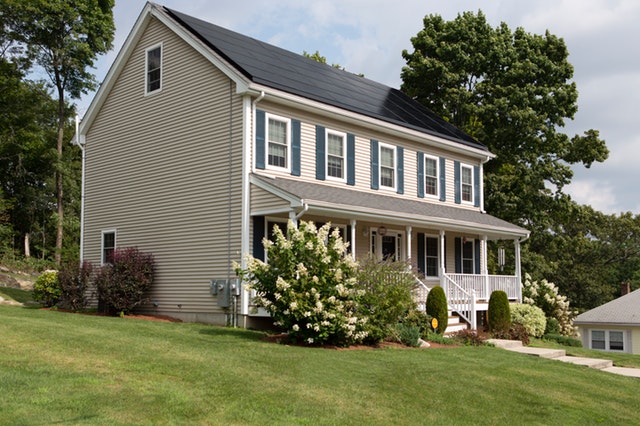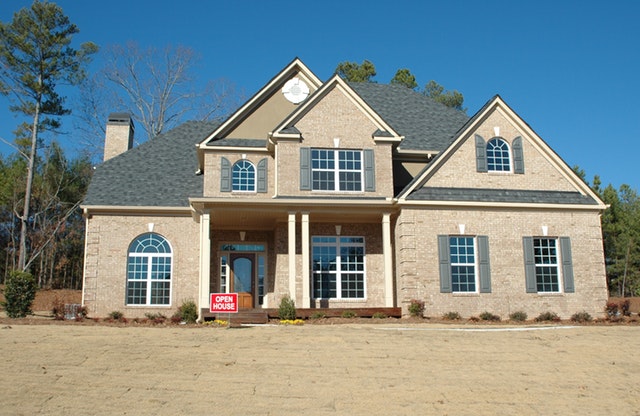 Real estate investors who want to build up a strong investment portfolio always keep an eye out for hot markets, which gives them a chance to pick up properties that add to their portfolio value.
Real estate investors who want to build up a strong investment portfolio always keep an eye out for hot markets, which gives them a chance to pick up properties that add to their portfolio value.
A word of caution about hot markets is that if you learn about them after they are already hot, you may have missed much of the run-up that made them hot.
Clever real estate investors try to anticipate markets that will heat up before they do, so they can buy properties in advance of increasing values. Selling properties in a hot market is how they capture profits.
The Hot Markets
Realtor.com® identified seven markets in the United States that are currently hot markets for flipping houses. The average gross profit for house flippers is $62,700. This figure does not include the cost of making the repairs. The gross profit equals about 20% to 33% of the home’s sales price after making the repairs.
An evaluation looking for hot markets for flipping homes considered the percentage of home sales that were investment properties.
The current hot markets, in the order of activity, are:
- St. Louis, MO – 18.8% of home sales are investment properties. The median sales price is $189,900.
- Birmingham, AL – 17.3% of home sales are investment properties. The median sales price is $190,000.
- Miami, FL – 17% of home sales are investment properties. The median sales price is $299,900.
- Tampa, FL – 16.2% of home sales are investment properties. The median sales price is $230,000.
- Memphis, TN – 16.1% of home sales are investment properties. The median sales price is $206,300.
- Las Vegas, NV – 15.7% of home sales are investment properties. The median sales price is $301,800.
- Phoenix, AZ – 15.1% of home sales are investment properties. The median sales price is $275,800.
Hot Pockets In Cooler Markets
Another way to find opportunities is to know your local market very well and look for areas that are up and coming. Look for a fixer-upper in a decent area. Also, search in areas that are adjacent to high-priced areas.
Look for soft barriers that can be passed easily, such as a block that is improving, which is next to another block that has already improved. Hard barriers, such as a wide street, a freeway, or a river make it more challenging for an improving neighborhood trend to pass across them.
Summary
Finding a hot market or a hot pocket comes from investigating potential growth areas and watching them. Get a feel for the trends. One strategy is to buy early when the prices are still low, rent the property for a while, and then sell later, once the market heats up.
If you are in the market for a new home or want to find out about the hot neighborhoods in your area, be sure to consult with your trusted real estate professional.
 Last week’s economic reports included readings from Case-Shiller on home prices, pending home sales data and the post-meeting statement announcement from the Fed’s Federal Open Market Committee were released.
Last week’s economic reports included readings from Case-Shiller on home prices, pending home sales data and the post-meeting statement announcement from the Fed’s Federal Open Market Committee were released. There are many options when it comes to taking out a loan on a new home. One of the options that people might have heard about is called owner financing. In general, the property owner takes the place of a traditional lender.
There are many options when it comes to taking out a loan on a new home. One of the options that people might have heard about is called owner financing. In general, the property owner takes the place of a traditional lender. When you are looking to purchase a home, you might be looking for a place for you and your family to live. It might surprise you to learn that not everyone who is looking for a house is necessarily in search of a place to live.
When you are looking to purchase a home, you might be looking for a place for you and your family to live. It might surprise you to learn that not everyone who is looking for a house is necessarily in search of a place to live. Remodeling is a common project that homeowners take on. If you are looking to remodel your home, it is important to keep in mind that this involves more than just improving your living area. If you remodel your home, you might also be expecting to generate a return on your investment.
Remodeling is a common project that homeowners take on. If you are looking to remodel your home, it is important to keep in mind that this involves more than just improving your living area. If you remodel your home, you might also be expecting to generate a return on your investment.  Electricity plays an important role in your home. It helps keep you warm, allows you to cook meals, and brightens up the interior of your house. At the same time, electricity is a common hazard.
Electricity plays an important role in your home. It helps keep you warm, allows you to cook meals, and brightens up the interior of your house. At the same time, electricity is a common hazard. Last week’s economic news included readings on sales of new and previously-owned homes and consumer sentiment. Weekly readings on mortgage rates and first-time jobless claims were also released.
Last week’s economic news included readings on sales of new and previously-owned homes and consumer sentiment. Weekly readings on mortgage rates and first-time jobless claims were also released. If you happen to want to move to a hot market for home sellers, here is some advice. Go looking for a home to buy when it is freezing outside or the weather is otherwise severe. Buying a home is both about finding one you like and beating out others if the market has buying competition.
If you happen to want to move to a hot market for home sellers, here is some advice. Go looking for a home to buy when it is freezing outside or the weather is otherwise severe. Buying a home is both about finding one you like and beating out others if the market has buying competition.  Recent medical school graduates, saddled by high student loan debt, sometimes have a hard time qualifying for a first mortgage. Now, however, a growing number of lenders will consider future earnings potential of high earners in the medical profession as a way to offset high debt ratios. But specialty mortgages for young physicians aren’t the only unique loans available today.
Recent medical school graduates, saddled by high student loan debt, sometimes have a hard time qualifying for a first mortgage. Now, however, a growing number of lenders will consider future earnings potential of high earners in the medical profession as a way to offset high debt ratios. But specialty mortgages for young physicians aren’t the only unique loans available today. PMI, which is also called private mortgage insurance, is protect that the lender may ask the buyer to purchase. In the event that the buyer defaults on their home loan and the home enters foreclosure, the lender has a way to recoup their losses.
PMI, which is also called private mortgage insurance, is protect that the lender may ask the buyer to purchase. In the event that the buyer defaults on their home loan and the home enters foreclosure, the lender has a way to recoup their losses.